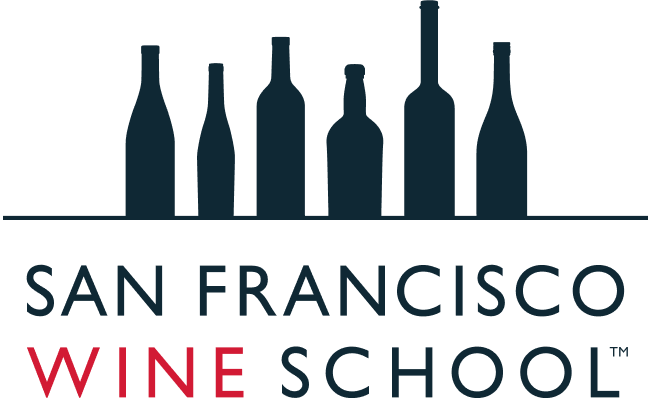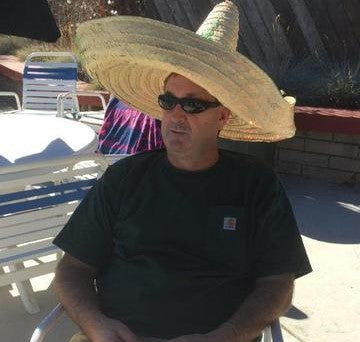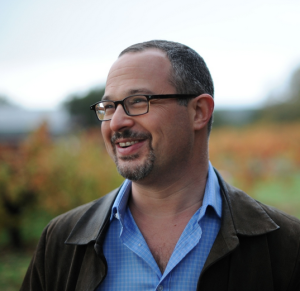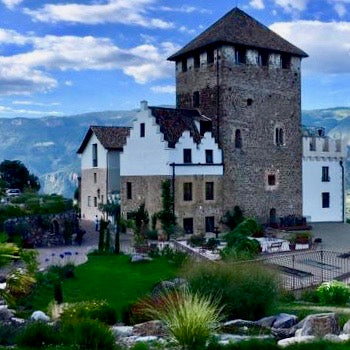Daniel O’Donnell and I met when I was the token Yank tacked onto a group of esteemed British writers, some possessing MWs. Halfway into what now constitutes a decade residing half-time in Turkey, the Napa/Sonoma winemaker was charged by the nascent Wines of Turkey with providing its honored guests with our initial, immersive education into the modern state of Turkish viticulture and enology. As Turkey’s wine sector lacks an historical foundation allowing it to understand the broader context of the world of wine, it couldn’t have chosen a more suitable teacher to communicate its nuances to international wine pros than with this native Californian. O’Donnell also maintains occasional work through consultancies in California, S. America, and Italy though he’ll titularly be representing Turkey, certainly its winery there of Kayra where he’s regularly engaged, at March 13’s Origins of Wine Civilization conference at the SFWS.
How’d you come to spend half of the past decade in Turkey?
The boys at private equity investor group Texas Pacific Group asked if I would stop by and have a look at the wine industry in Turkey, as it’d just bought TEKEL (the government-owned alcohol monopoly) and took it private. What I found from my western eyes was surprising to say the least; the business side was bleeding to the tune of about $12m annually, terrible wines were being made helped by shoddy infrastructure, neolithic viticulture and over employment. When asked if it could be turned around I gave it a 50% chance. We could have just closed it down but I believed that the other 50% would be a very intense and interesting ride—which its turned out to be…and much more.
I suggested that in order to gain the trust of the consumer I’d need to dispense with 16m liters of what they referred to then as ‘wine’. They agreed which implied they were committed long-term for quality winemaking. İ felt like Dr. Leary in the ‘60s. Since then the great folks in Turkey have embraced me with open arms helping to ground me. The hospitality is amazing to say the least with a few incredibly dedicated people who’ve become not only workmates but family & friends. When Turkish winemakers get their bearings, the lucky few that make it their life’s work will be a sight to behold especially considering they’re in a country where the craft isn’t supported by the general population. I’ve been in the presence of several young winemakers embracing a passion, hard work with long hours, and an ambition to succeed that is unrivaled. I cannot wait until they kick my old bones out and take it all over!
How does the overall state of Turkish wine production differ now from when you arrived in 2006?
Competition has been a great inspiration in this regard. As the more travelled and experienced the consumer has become, their demand for quality has parroted that. Producers new and old have taken stock in developing quality winemaking and viticulture. For the domestic market, as consumption has created a slight dip in legal salesm, the quality/value correlation becomes much more important while for the export side we must have a higher standard than any other well-known wine producing region as we are not yet on the radar of the average world wine enthusiast. In the last decade which it’s moved at light speed given the overall wine world’s more glacial pace.
In addition to presenting Kayra's portfolio at the Grand Tasting of the impending Origins of Wine Civilization conference, you’ll also be on its Eastern Mediterranean panel. But with Turkey both geographically and historically straddling it and the Caucasus, what overriding factors led you to decide upon Eastern Mediterranean?
It chose me really and I was up for a bit of winemaking adventure, still am and am seeing it in spades. How many winemakers have their way with the native Öküzgözü or Kalecik Karasi? Or just wander around vineyards that are hundreds of years old with genetics dating back thousands of years in what at the time was Mesopotamia and get to see what kind of wines they will produce??
What ancient wine practice, either in production or enjoyment, carries through for you to the present with the greatest seamlessness, the greatest clarity?
I did not see it for several years as it took me a bit to take off my western looking glasses but for some of the indigenous varietals the viticulture has resonated deeply. It really looks so simple but is rather complex, and further to turn the page of viticulture back a few 100 years and see why some things work out in a very positive way in terms of winemaking and some things do not. The English translation of the variety Boğazkere means ‘burns the throat’. İt is a real tannic monster similar to Uruguayan Tannats of the early ‘80s. Trying to modernize an experimental planting was probably the least successful experiment I’ve done to date. The old method did not look especially nice but it made for much more soulful and charismatic bottlings. These vineyards are in an area that skipped the industrial revolution; biodynamic means nothing here as vineyards have existed for eons with out even the slightest influence from the Monsanto machine. Sheep and goats and bees give so much more than I could ever hope to add—and that comes from a old fat Napa Man.
Turkey enjoys a slew of indigenous grape varieties, many of which have names that are difficult for Americans to wrap their brains and tongues around. While this is a potentially great inbred USP, how is Turkey best positioned to get around the linguistic barrier?
How about they just make some up like the rest of the world has done for generations? How many folks in the USA can pronounce 25% of the grapes of Italy? I am getting pretty long in the tooth and still have a hard time with all of the varietals that are just commonly known globally. Local vernacular has a lot to do with that, and hope that Turkish wines will gain enough popularity that the its unique varieties would lend an easily translated emotion such as when Bordeaux, Napa, Priorat, Barolo, Heathcote or Mendoza are mentioned.
Kayra has for years enjoyed a successful wine enjoyment and education site in Istanbul which, having visited myself in 2010, is a likely ’must stop’ for wine-loving tourists. But how has this helped Turks, especially younger ones, appreciate their wine heritage?
Whether it be someone studying to be entry level sommelier or interested individual it’s been very helpful in that seeking out an experience or education leads to a deeper and lasting interest—no matter the subject. As it relates to the WSET training we give, it allows many of our guests global wine experience in a non-judgmental way that is not necessarily price-sensitive. Many wines and styles are surveyed & studied, allowing students of the craft a unique perspective on wine quality not readily available elsewhere in the country. In the long term this raises the baseline of quality overall for private or public enthusiasts.
While Kayra itself isn’t likely to go anywhere soon, given the recent dissolution with wine that Diageo has engaged in, this aspect of its business in Turkey can’t help but be called into question. What do you reckon will transpire?
Interestingly enough Turkey is one of two countries from the portfolio where the wine business is doing very well and seems to be an integral part of the Mey family.
Throughout your career as a winemaker what has been the most surprising discovery you’ve encountered?
Talking about casting a wide net! Mostly its the people in the trade, unbelievably dedicated, hard working, and passionate but sometimes a bit bonkers…which is a good thing. How all react to vintage, really an energizing time of year even if we are at it full-on a few months over 18 hours each day. İt’s the best time of year. The patience of everyone’s significant others in letting all of us do what we do, when we need to. Coming home knackered covered in dust and grime from the vineyards or stained purple, our hands like elephant skin and backs aching; they smile, feed us and tell us they love us. They’re real, unheralded stars of the wine business. Every one of those people I work with is honest, kind and extremely helpful. An Ok, or a handshake, is all anyone needs or wants. The winemaking community has depth of integrity with most moral compasses aligned for the benefit of everyone’s craft.
As for the wines, one of the great surprises is a white wine we made in Turkey from a red grape called Kalecik Karasi. Never had I had the intense citrus and lemongrass fragrance from a red grape. It took many pickings and fermentations to get it but we discovered something that is really interesting, something we’ll taste at the Origins of Wine Civilization conference.



